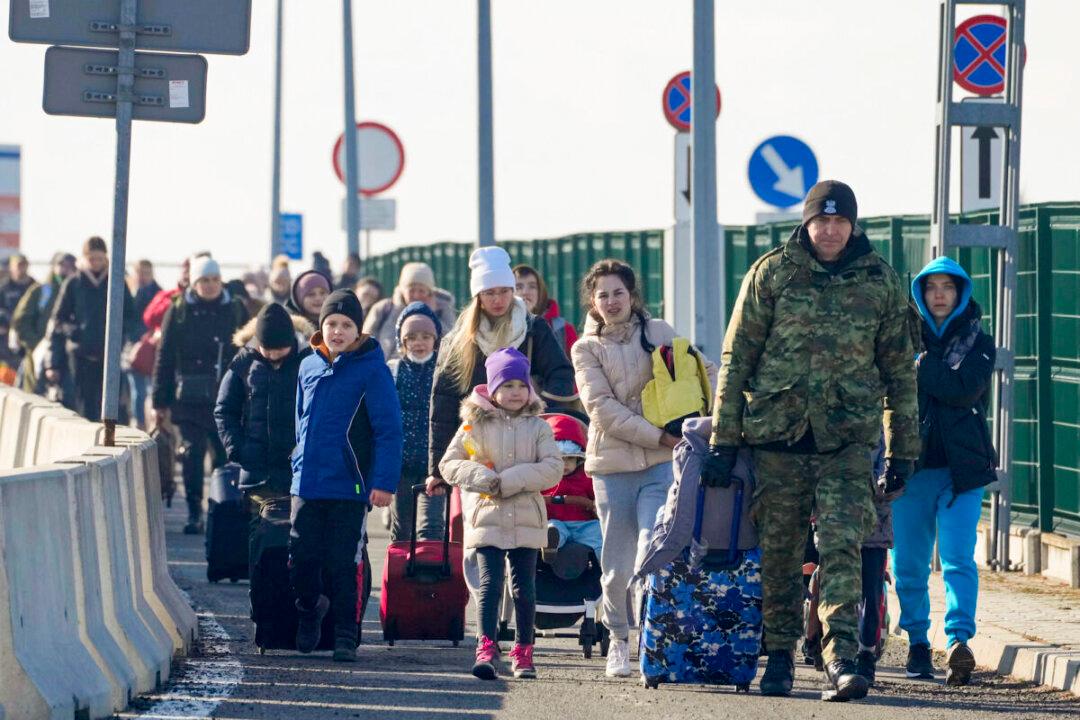WARSAW, Poland—Ukraine’s neighbors in Eastern Europe have ramped up their support for the beleaguered nation in the face of the Kremlin onslaught—closing their airspace to Russian overflights, providing refuge to people fleeing the war, and shipping ammunition.
Poland on Friday delivered to Ukraine the first publicly acknowledged military aid since the invasion began, according to the country’s Minister of Defense Mariusz Blaszczak.





